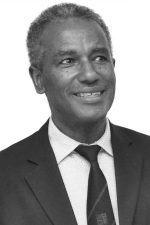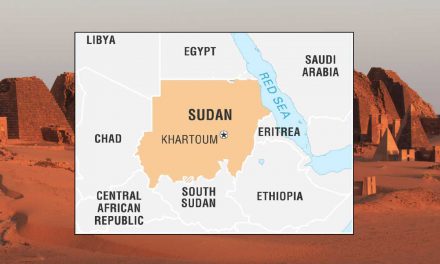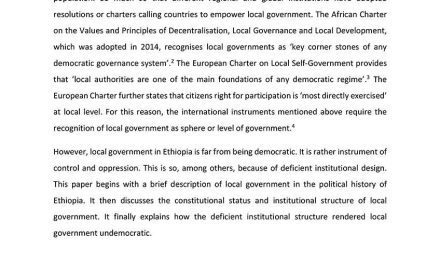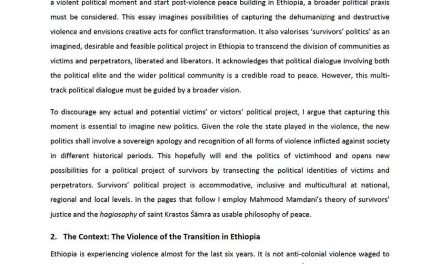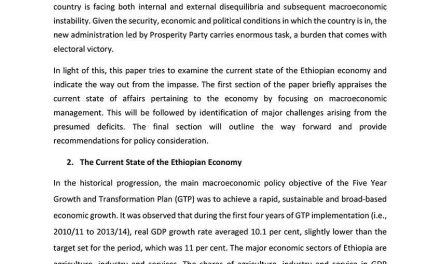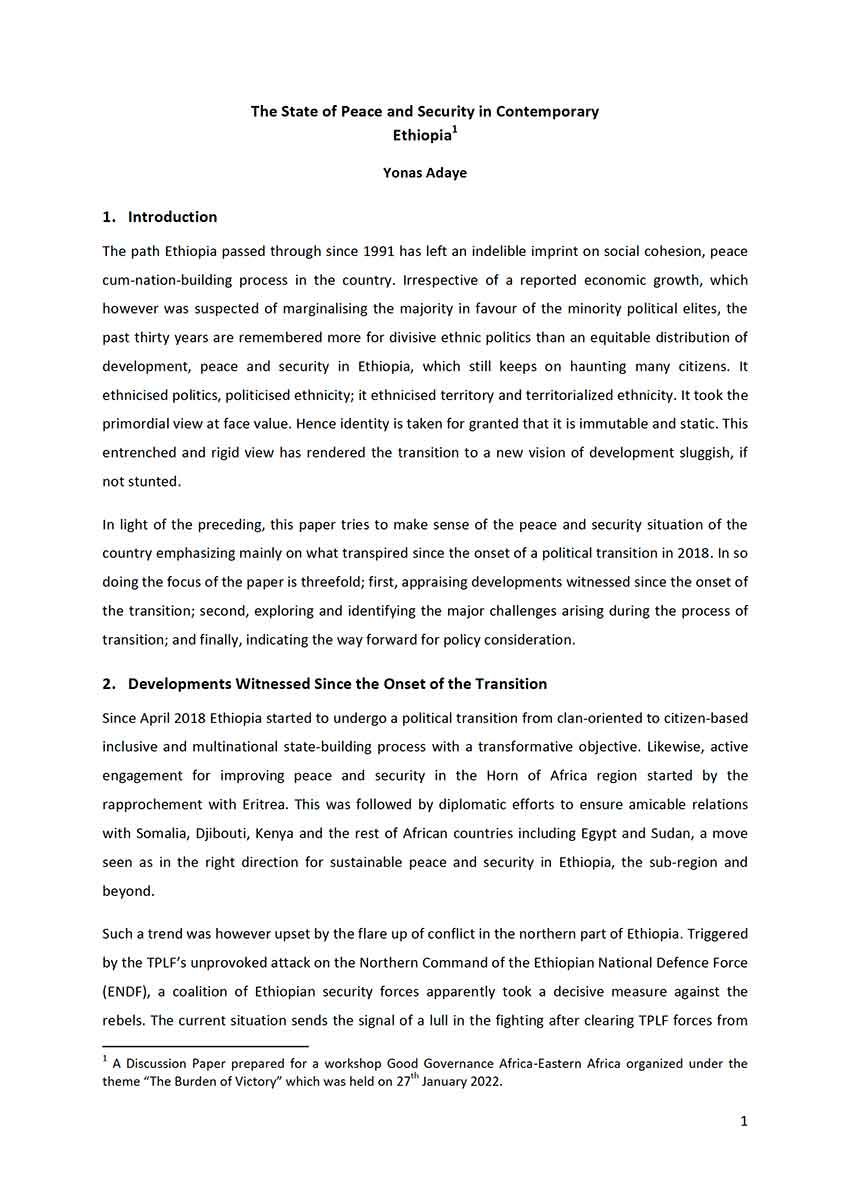
The path Ethiopia passed through since 1991 has left an indelible imprint on social cohesion, peace cum-nation-building process in the country. Irrespective of a reported economic growth, which however was suspected of marginalising the majority in favour of the minority political elites, the past thirty years are remembered more for divisive ethnic politics than an equitable distribution of development, peace and security in Ethiopia, which still keeps on haunting many citizens. It ethnicised politics, politicised ethnicity; it ethnicised territory and territorialized ethnicity. It took the primordial view at face value. Hence identity is taken for granted that it is immutable and static. This entrenched and rigid view has rendered the transition to a new vision of development sluggish, if not stunted.
In light of the preceding, this paper tries to make sense of the peace and security situation of the country emphasizing mainly on what transpired since the onset of a political transition in 2018. In so doing the focus of the paper is threefold; first, appraising developments witnessed since the onset of the transition; second, exploring and identifying the major challenges arising during the process of transition; and finally, indicating the way forward for policy consideration.
Yonas Adaye is an Associate Professor of Peace Studies; He earned his PhD from University of Bradford, UK in Peace Studies. He is Director, Institute for Peace and Security Studies (IPSS), Addis Ababa University, Ethiopia. He has published peer reviewed articles and book chapters on Peace building, Conflict Resolution, Security Sector Governance, Peace Education, Preventing Violent Extremism, Diplomacy, International Relations and Global and Regional Security in international journals and books. Currently, Dr Yonas Adaye is appointed as one of the eleven Commissioners by the Parliament for the National Dialogue Commission.

